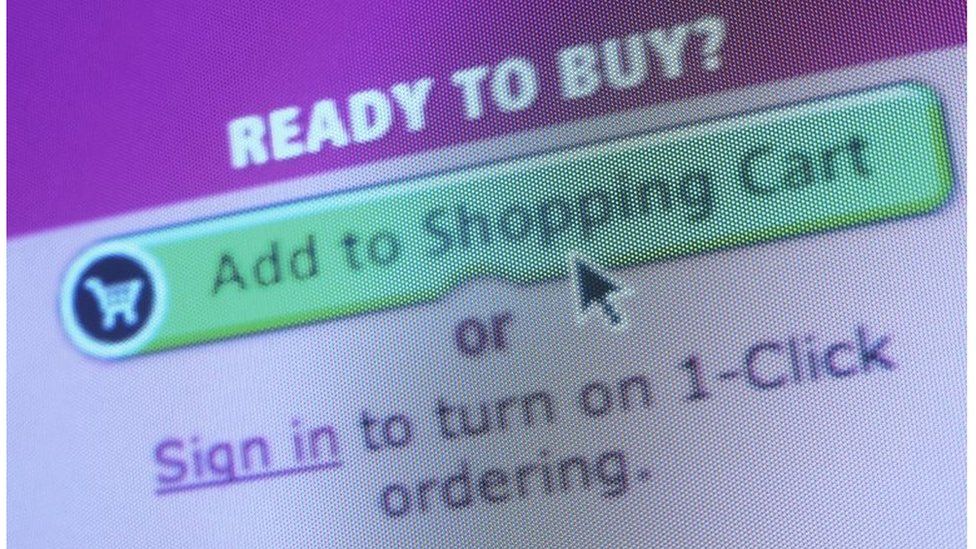UK's online shoppers top global spending survey
- Published

Online shoppers in the UK spend more per household than consumers in any other country, a report says, amid a shift from stores to the internet.
UK households spent the equivalent of $5,900 (£4,611) using payment cards online in 2015, the UK Cards Association said.
This was higher than Norway ($5,400), the US ($4,500) and Australia ($4,000).
The association suggested the frequency of debit and credit cards and the ease of delivering items drove online buys.
New figures from the association showed that £154bn was spent on the internet using cards in 2016 - up by a quarter in two years.
Cinema tickets
Entertainment - such as cinema and concert tickets, takeaway orders and music downloads - accounted for one in four online card purchases in the UK.
Some 67% of concert ticket spending and 61% of cinema, theatre and dance spending was made online, the association's figures showed.
The popularity of renewing contracts such as insurance cover online, and payments into bank accounts over the internet also meant financial services registered considerable activity online. More than a quarter (27%) of what was spent online was in financial services.
However, attempts of online retailers to make a mark in the grocery sector had so far failed in comparison to the use of cards in shops and supermarkets. Some 41% of in-store card purchases were on food and drink, compared with only 7% via the internet.
Pawn shops, laundry and pubs, somewhat unsurprisingly, registered the least online shopping activity, the figures showed.
Clicks or bricks
Traditional retailers have felt a significant impact from the online shopping habits of customers.
Earlier this week, High Street retailer Debenhams announced a change of strategy owing, in part, to fast-growing "mobile interaction".
The plan means up to 10 of its 176 UK stores may be closed over the next five years. A central distribution warehouse and about 10 smaller warehouses could also be shut.
A further cost burden was also felt, particularly by clothes retailers, as a result of online shoppers returning items they did not want during a statutory cooling-off period.
Consumer analysts Savvy Marketing compiled figures for BBC Radio 4's You and Yours programme and found that among 1,000 online shoppers questioned, women's clothing had been returned by 63% of them.
Retailers said free returns were an important part of their business, but the costs had to be recovered somewhere or they risked going under.
Many shoppers still fear that online shopping opens the door to cyber-criminals, but Richard Koch, head of policy at the UK Cards Association, argued that security was improving.
"Since the early days of internet shopping there has been a host of innovations, from digital wallets to one click purchases, which bring enhanced security, choice and convenience for customers and which will lead to continued growth in the sector.
"The additional protection provided when using a card also gives consumers extra peace of mind when they are shopping online," he said.
Concerns have also been raised over internet selling fuelling a rise in shopping addiction.
Some mental health problems manifest themselves in compulsive buying, making purchases which are later regretted. This could lead those affected into a spiral of debt.
A report by the Money and Mental Health Policy Institute suggested that 24-hour online shopping meant "consumers who struggle to control their spending find themselves at greater risk than ever before".
Retailers send personalised emails to customers, based on previous purchases, which may include short-term discounts and promotions.
- Published20 April 2017
- Published27 October 2016
- Published3 February 2017
- Published30 May 2016